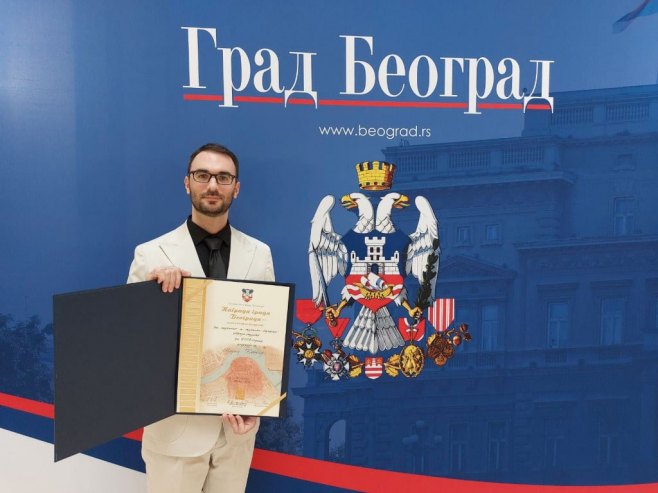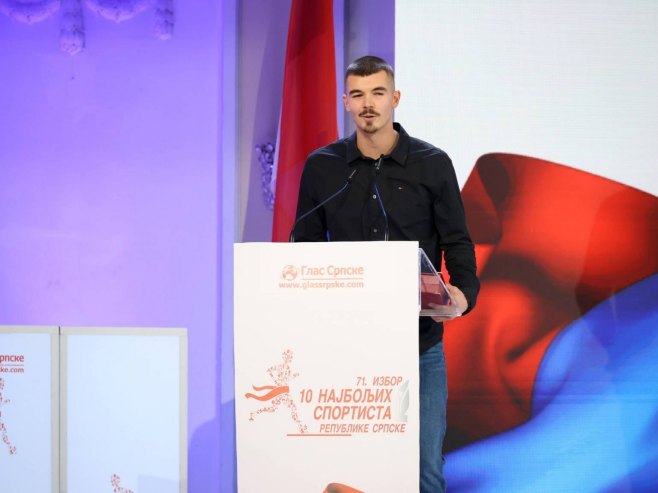An exhibition titled “The Truth is, People Read! Banja Luka Libraries in the National and University Library of Republika Srpska 1856-1956” will be opened at the exhibition hall of the NUB of Republika Srpska.
The authors of the exhibition, Berislav Blagojević and Orianа Vuković, present a unique history of reading in the city over the span of a century. What did Petar Kočić read, and what about his godfather and biographer Vaso Glušac? Who gifted books to Jovanka Milošević, the mother of academician Vlado Milošević, and from whom did she receive books as gifts? What were school libraries in Banja Luka like, what was read in KAB, and what in the mobile libraries of the Sokol Society? Did Banja Luka merchants of that time care about books? Answers to these and many other questions can be found at the exhibition “The Truth is, People Read!”
- “In the collections of the National and University Library of Republika Srpska, there are numerous books that bear evidence of their previous owners—marks of the past that testify to bibliophiles and booksellers, donors and readers, miles of travel and hundreds of hands through which a book has passed before finally resting on a shelf. That rest lasts until a new reader arrives, whether a student, librarian, official, or writer. Thanks to the preserved material, this exhibition reveals a continuous tradition of reading in Banja Luka, and we can rightfully say: ‘The truth is, people read,'” said the authors in the announcement.
One of the authors, writer Berislav Blagojević, explained that the exhibition was prepared over several years through careful examination of library materials.
- “The Truth is, People Read! Banja Luka Libraries in the National and University Library of Republika Srpska 1856-1956″ took several years to compile, as it involved finding materials in the NUB collection. Initially, it was conceived as a contribution to understanding the history of libraries and librarianship in this area, but during the process of collecting and selecting materials, it became clear that it was more natural to tell a story about the history of reading in Banja Luka,” said Blagojević.
The exhibition and accompanying catalog complement each other in portraying a time when books were among the most treasured possessions. Many notable citizens, writers, professors, teachers, priests, and merchants owned personal libraries, as evidenced by inscriptions, stamps, marginalia, autographs, and dedications. Similar traces of reading and ownership are also found in books belonging to schools, cultural and educational societies, religious organizations, governmental and administrative bodies, trade unions, and military institutions. These traces allow at least a partial reconstruction of the lives of the books and their owners, whether individuals or societies.
According to Oriana Vuković, this is an exciting story about a tradition that is rarely mentioned today—the tradition of reading and the continuity of reading habits.
- “Looking at the material, it can truly be said that everyone who was literate at the time read, and they read practically everything—from fiction and professional literature to philosophy and political theory. Those who could not afford to buy books borrowed them, like Branko Ćopić, who, as a student of the Teacher Training School, visited priest Dušan Kecmanović, whose private library was one of the richest in the city. Others went to various associations to borrow books or read newspapers. The Serbian Reading Room led in the number of available titles, but there were also libraries in other institutions and societies: the Sokol Society, KAB, SKPD ‘Pelagić,’ KD ‘Zmijanje,’ the Muslim Reading Room, and the Officers’ Club Library. Special mention should be made of libraries for minorities, which were well-stocked and open to all citizens, such as the Russian Matica Library and the library of the French-Yugoslav Club,” said Vuković.
Given that books were highly valued, the authors paid special attention to the practice of gifting books.
- “Among the many dedications in the discovered books, we selected a few that clearly demonstrate cultural connections, respect, and cooperation among cultural workers of that time. Worth noting are the many books gifted to Jovanka Milošević, mother of academician Vlado Milošević, as well as those received by Špiro Bocarić from various notable figures. Books were sent from Montenegro to Petar Kočić, and teacher Olga Kasalović received a book with a beautiful dedication from Serbian writer Milica Janković,” said Blagojević.
The authors emphasize that this historical overview of reading habits would not have been possible without the existence of past libraries and their preservation by the NUB of Republika Srpska.
- “Preserving library materials is a crucial aspect of library work. Thanks to this preservation, libraries are not just repositories of knowledge but also guardians of fascinating stories, sometimes hidden on the margins of books. These stories reveal not only the printed content but also the journey of the book itself—where it has been, whose hands turned its pages, who displayed it proudly, who hid and smuggled it, who spent sleepless nights interpreting its content, who became wiser with it, and who used it to relax after work,” said Vuković.
Guardians of cultural heritage
The exhibition covers a turbulent historical period. Due to wars and natural disasters, many books were destroyed.
In the devastating earthquake that hit Banja Luka in 1969, around 72,500 publications were destroyed.
- “During that time, and decades before and after, librarians worked tirelessly to preserve valuable library materials, even under difficult conditions. A significant portion of the books mentioned in this exhibition once belonged to various societies and the Serbian Reading Room, from which our library originated. Most of these books arrived at the library after World War II, and librarians deserve recognition for keeping them alive to this day,” said Vuković.
The exhibition includes books from personal libraries of notable Banja Luka residents, school libraries, government institutions, religious and cultural societies, and educational associations. What connects them is that they are undeniable evidence of the tradition of reading and a deep appreciation for books.
Source: Glas Srpske









